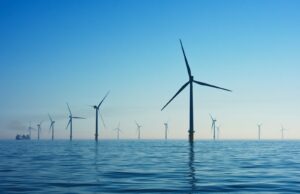Although society is shifting towards renewable energy, the pace isn’t fast enough to offset the impacts of economic expansion and a growing population, according to a report published by the World Energy Outlook on Tuesday (November 12),
The International Energy Agency (IEA) said that society is still heavily dependent on fossil fuels and will remain that way unless major policy changes are made.
According to the report, despite an increase in the use of renewable energy, carbon emissions still hit an all-time high in 2018.
The IEA said that shifts in energy demand and consumption are possible but in order for this to happen: ‘Governments must take the lead, they must take a hard, evidence-based look at where they stand and the implications of the choices that they make.’
The IEA estimates that by 2040, 50% of energy will be provided by renewables, but with energy demand rising annually by 1% the increasing reliance on renewable energy will be insufficient to reach the goals set out in the Paris Climate Agreement.
Dr. Fatih Birol, the IEA’s executive director said: ‘What comes through with crystal clarity in this year’s World Energy Outlook is there is no single or simple solution to transforming global energy systems.’
‘Many technologies and fuels have a part to play across all sectors of the economy. For this to happen, we need strong leadership from policymakers, as governments hold the clearest responsibility to act and have the greatest scope to shape the future.’
‘The world urgently needs to put a laser-like focus on bringing down global emissions.’
‘This calls for a grand coalition encompassing governments, investors, companies and everyone else who is committed to tackling climate change.’
‘Our Sustainable Development Scenario is tailor-made to help guide the members of such a coalition in their efforts to address the massive climate challenge that faces us all.’
In related news, just 13 out of 132 of the world’s largest coal, electricity and oil and gas companies have made commitments to reduce their greenhouse gas emissions to net-zero, a study has found.
Photo Credit – Pixabay
















